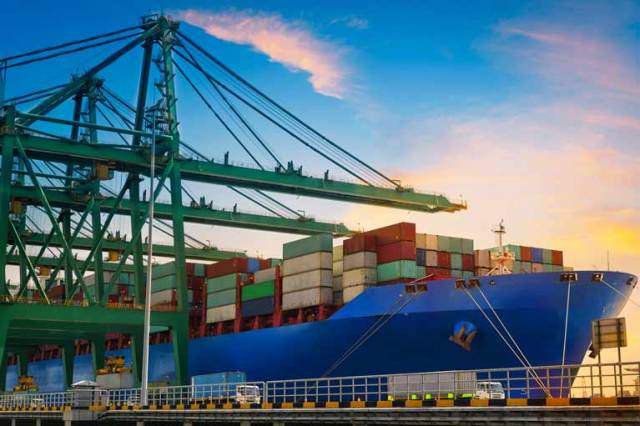ParcelHero’s David Jinks will tell a major world maritime conference in London. Shipping lines will be forced to either integrate with Amazon and Alibaba or be submerged by the digital revolution.
‘A change in global supply chains even greater than the introduction of containers in the 1950s is underway, and shipping lines that don’t adapt to the new e-commerce revolution will go under in the same way as the many long-established companies that failed to adapt to containerization.’
That’s the message that David Jinks MILT, Head of Consumer Research at the international delivery experts ParcelHero, and former Editor of Logistics & Transport Focus and Lloyds Shipping Index, will tell delegates at this month's prestigious Digital Ship CIO Conference, at the Waldorf Hotel on Thursday 28th February.
Says David: ‘The prime need for Amazon to entirely integrate its supply chain means it has already revolutionized its land and air operations – it now delivers 80% of its own parcels in the UK and flies over 40 Boeing 767 Amazon Air jet freighters. It now has the crucial supply chain from China to the West firmly in its sights. At the same time the Chinese e-commerce giant Alibaba, whose volumes make Amazon look like a minnow, is fast integrating its own deliveries to the US and Europe.’
Warns David: ‘As freight forwarders and shipping agents become obsolete under the new digitized retail supply chains, shippers must either integrate with Fulfilment by Amazon and Alibaba’s One Touch booking programme, or be overwhelmed by the tsunami that is sweeping over the shipping industry.’
David will reveal that shipping lines must either adapt to survive - as Maersk is attempting by integrating with Alibaba and introducing its revolutionary Captain Peter App to track container loads - or face the prospect of Amazon launching its own rival fleet; it already has its own freight forwarding service.
Reveals David: ‘When the first container ship sailed in 1956 a longshore union boss said: ”‘I’d like to sink that son of a bitch”. He recognised the sea change that would follow. We can now see that this digital revolution will result in Internet of Things (IoT) connected machines placing orders automatically with Chinese manufacturers, and integrating with autonomous ships like the soon-to-be-launched Yara Birkeland. It’s sad but true that those shipping lines, freight forwarders and agents who still favour personal contact and the phone will be left all at sea as the pace of integration increases.’
Joining David at the conference will be speakers from IBM, Inmarsat, Hill Dickinson LLP and other leading maritime industry organisations.
For more information on the leading industry figures speaking at the Digital Ship CIO Conference and details of how to attend see here































































